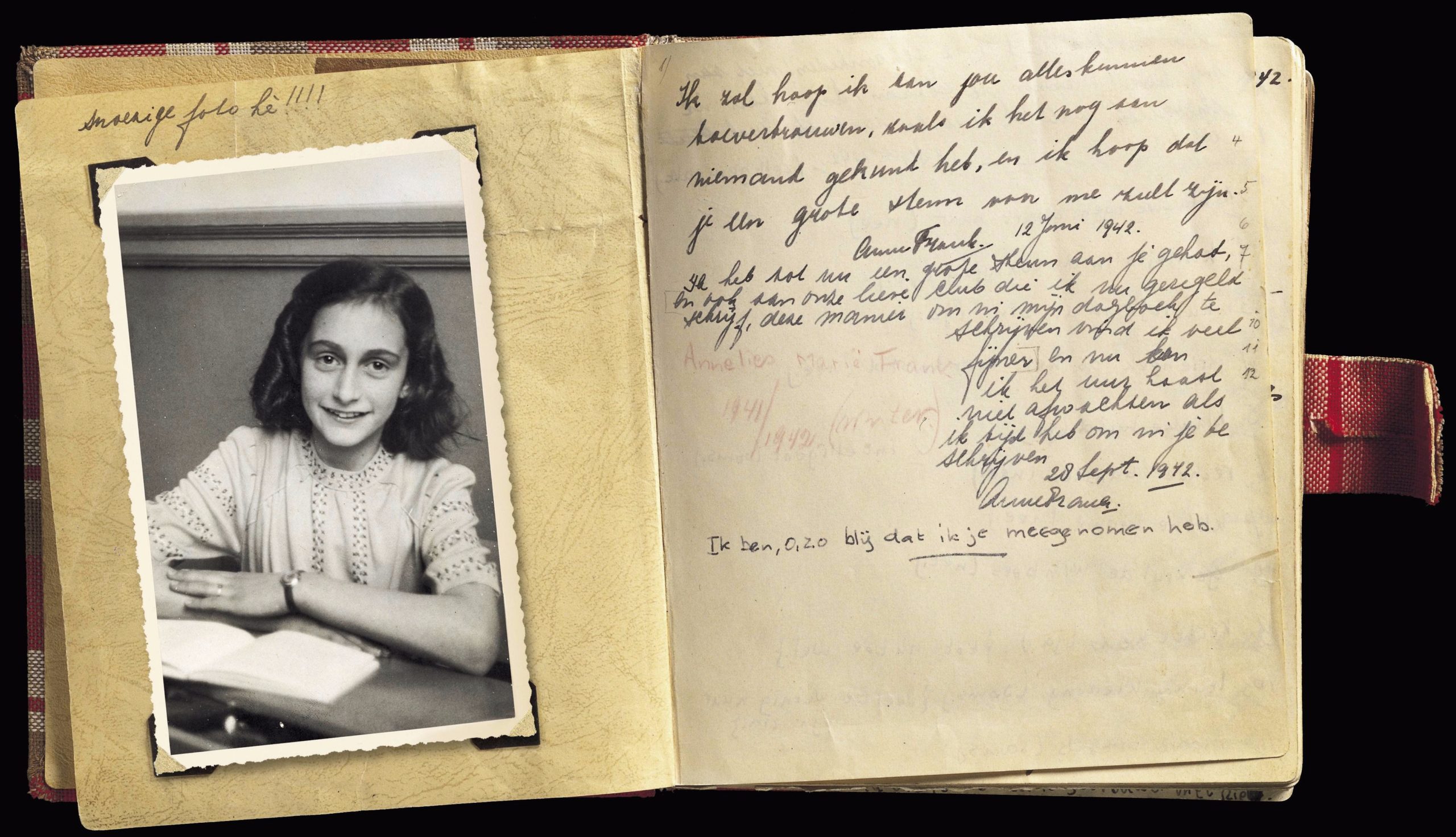Anne Frank was born as Annelies Marie Frank on June 12, 1929, in Frankfurt am Main, Germany. She was born into a Jewish family and they moved to Amsterdam just a few years later as Adolf Hitler’s influence took over Germany and the economy was in a decline.
Hitler became Germany’s chancellor in 1933. The Nazi party treated the Jews unfairly even at the beginning of this power, but their actions built up before they reached the horrible conditions of the Holocaust, which led to the murder of almost six million Jewish people. The first real step taken was the government’s boycott against Jewish goods. As Hitler gained more power, these acts would only get worse. He wanted Germany to consist of only ‘pure’ people and described the Jews as being like “germs.”
It is not entirely known as to why Hitler felt prejudice against Jewish people, known as anti-Semitism. One possible explanation is that at the time, the Jews were falsely blamed for causing Germany to lose World War I and was left in a ruined state. Hitler was a German soldier himself during this war and it was said that the Jewish people betrayed their country. Frank’s own father, Otto Frank, was also a German soldier during this time, however. Hitler also expressed the belief that Jews were after world power.
“Think of all the beauty still left around you and be happy.” -Anne Frank
It was in 1939 that World War II began. Before this, Frank had been living a relatively normal life in the Netherlands as she went to school and had friends. Her father also owned a business. On her 13th birthday, Frank received what would become her famous diary. As time went on, however, Jewish people started to be banned from public places, and eventually Frank was forced to switch to a school specifically for Jewish children.
It was when Frank’s sister was summoned to a so-called German “labor camp” in 1942 that the family decided it was time to hide. They took refuge in the back of Otto Frank’s business, their “secret annex,” where four other Jews eventually joined them. Friends who were not Jewish assisted them by sneaking them food. Anne Frank, having to keep quiet during, spent much of this time writing in her diary about this experience as well as typical troubles of a girl her age. She expressed the dream of being a writer someday.
“I still believe, in spite of everything, that people are really good at heart”-Anne Frank
Frank wrote in her diary for the final time on August 1, 1944. It was on August 4 that she, her family, and others hiding with them were found by the Gestapo, the Nazi police. It is thought that their finding was possibly due to a tip, whose source is still not known. The Franks had been in hiding for about 25 months when this occurred.
Frank and her family were transferred to different concentration camps in areas taken over by the Germans. The first being Westerbork in the Netherlands and then Auschwitz in Poland about a month later. The traveling conditions were harsh as they were packed in vehicles with over a thousand people with hardly any food or water. Eventually, Frank and her sister were taken from Auschwitz and were transported to Bergen-Belsen, a camp located in Germany.
In early 1945, Frank’s mother died from starvation in Auschwitz. Frank and her sister died not long after as they came down with typhus while in Bergen-Belsen, which was freed only a few weeks later by Britain. Otto Frank, who had been separated from his family and sent to a men’s camp, was the only member to survive.
“Whoever is happy will make others happy too.”-Anne Frank
Anne Frank’s diary was found by family friend Miep Gies after the Franks had been sent to the concentration camps. Gies saved Frank’s writings in a desk in hopes that one day they would be returned to their owner. When Gies crossed paths with Otto Frank after he was freed, she gave him his daughter’s diary.
In 1947, Otto Frank had the diary published in Dutch under the title, “Het Acheterhuis” or “Rear Annex,” aware of Anne Frank’s dream of doing this herself. It has since been translated into more than 70 languages and sold millions of copies.
Rebekah Davidson
Intern


